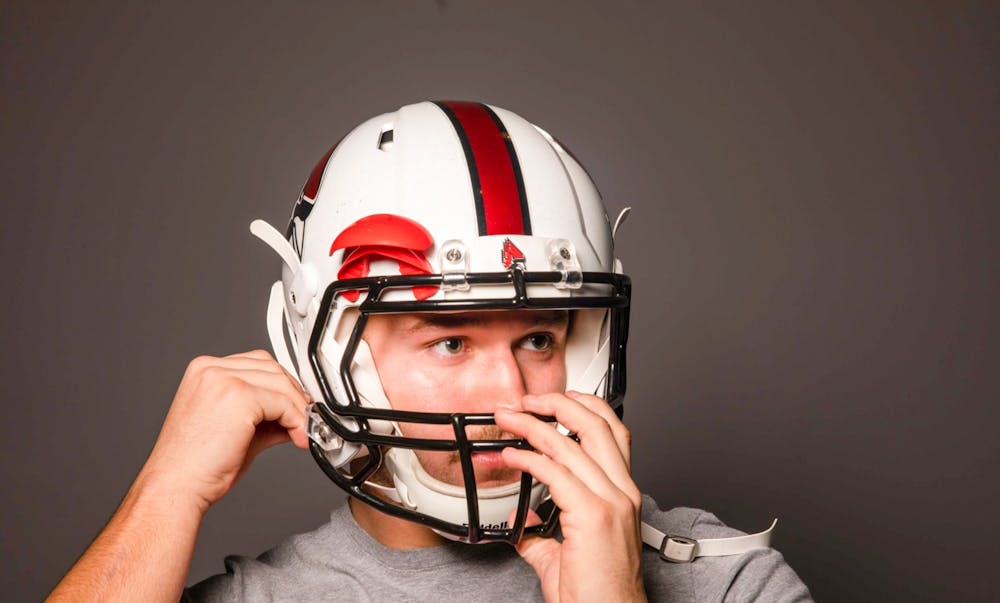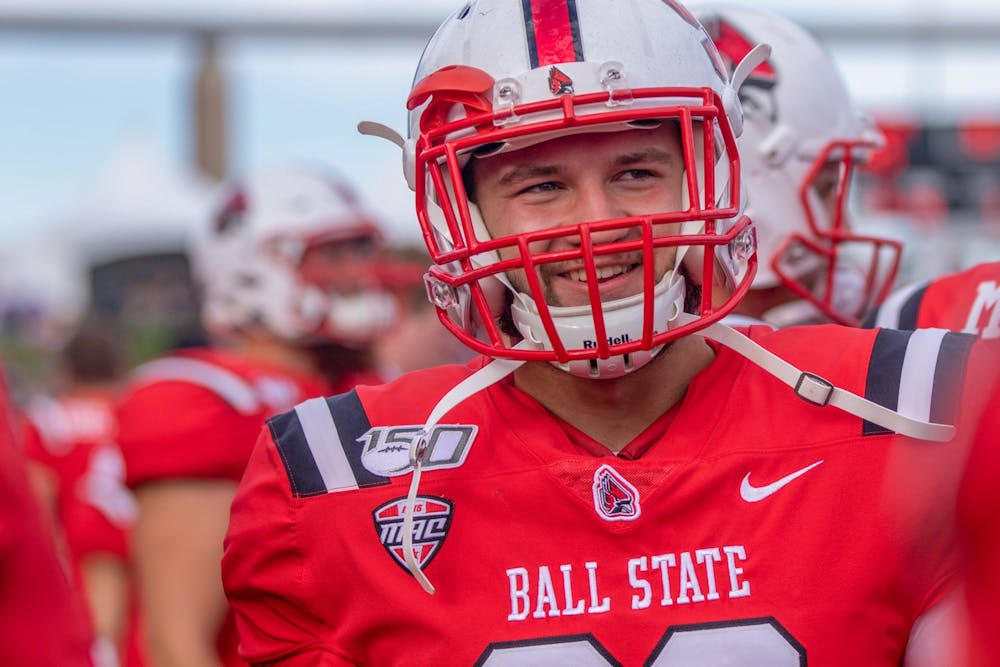
Mitchell Carter is a sophomore journalism major and writes “MitchSlap" for The Daily News. His views do not necessarily agree with those of the newspaper.
Growing up in a small, midwest town, I was an all-American kind of kid. I played every sport imaginable — football, baseball, basketball, wrestling. You name it, I played it.
However, I never stepped foot on a soccer field.
When I brought home soccer sign-up fliers from school, smiled my toothless smile and begged my parents to let me play, I heard a multitude of excuses as to why I couldn’t:
“Oh, you already do everything else.”
“We can’t be driving you to any more practices or games.”
“It’s just not in the budget to sign you up for something else.”
It wasn’t until I was a little bit older that I began to question why I was allowed to play every other sport, but soccer was oddly always prohibited. My mom finally told my teenage self why: I wasn’t allowed to play soccer because my dad thought it would make me gay.
My father is a wonderful man. He always puts his family first and has become much more accepting since I was a kid. However, the constructs around masculinity set up by society and the environment he grew up in contributed to his ignorance about things he was not a part of and therefore did not understand — like soccer. Because his father raised him to believe these toxic ideals, he tried to instill them in me: Boys don’t cry, and blue is masculine and pink is feminine, so if a boy likes pink, it means he’s gay, just like playing soccer.
Now, don’t get me wrong, I love being a man, and I’m not ashamed to be one. I am ashamed, though, of the way society has pushed men toward false ideas about emotions, mental health and acceptable behavior. I’m ashamed that often times the conversations between men I know rarely go deeper than the discussion of the type of beer they drank last night or the game right in front of them. I’m ashamed that the earrings I rock every day are most certainly a sign of blatant homosexuality in the minds of most midwestern young men I know and that I wouldn’t have gotten my ears pierced while I was in high school because I felt the same way.
But I’m most ashamed that I was afraid to ask for help with my own mental health because I felt like if I did, it would mean I failed as a man. Until we as men change our own ways, we are only continuing to contribute to the cycle of telling men to “man up,” even though the rate of male suicide has increased every year since 2013.
I’ve put years of work into football, and my efforts finally paid off when I earned a spot with the Ball State Cardinals. I spent countless hours in the weight room and on the field, and I traveled all over the country to different camps to try to get on a team — any team — and I cried with my mom in the car for what felt like an hour after I got the offer from Ball State. It was only a walk-on spot, but I would have done anything to play Division I football, and I was finally achieving my dream.
Not even a week into fall camp, I hyperextended my knee and missed a few practices. I ended up back in the developmental lift that is geared toward incoming freshmen who typically have a part of their game that needs improvement before they can see the field. As the season began, I stayed in Muncie when the team traveled to away games.
I was crushed, but I did what all tough football players do: I manned up, kept smiling and kept grinding alongside everybody else while trying to make the best of my situation.
As I woke up day after day, eating the same breakfast I always did and attempting to show the young bucks in developmental the way Ball State does things, it became harder and harder to smile and stay motivated. I made sure I was always cracking jokes at practice and smiling, but for the first time in my life, I didn’t feel tough anymore. I wasn’t the hardest dude in the room, and I couldn’t keep on weight like I used to because I felt so depressed. It was a punch in the gut every time somebody at home asked me how the season was going and asked if I was getting any playing time, and I had to say no.
The thing I had loved the most in the world for so long no longer gave me joy.

Redshirt freshman Mitchell Carter puts on his helmet Nov. 25, 2019. Jacob Musselman, DN Illustration
I knew something was wrong with me, but I said nothing for weeks because I wasn’t comfortable being vulnerable with anybody. I would lay around at home, waiting until the last possible minute to do any work. It wasn’t until my great grandfather died and I got to go home for a day that I knew I had to say something to my family. As a man, though, I was afraid to talk to my parents — the same people who have loved me my entire life without fail despite my numerous shortcomings. Because of how society has conditioned men to deal with their emotions, I could barely choke out the words “I think I need counseling.”
I was diagnosed with depression the next day, and I didn’t tell a soul at first. I felt like I had failed at being a man, and no one would respect me if they found out. I feared people would think I just wanted attention, and I wouldn’t be taken seriously. Even now, only a few people have any idea I take antidepressants every day when I get home from football practice.
But mental health, like sexuality, is neither masculine nor feminine. Yet, because of masculine constructs in our society, most men are not going to initiate a conversation about their individual struggles, mental health or insecurities for fear of allowing themselves to be vulnerable. I know because I used to be the exact same way — I used to suffer in silence because I didn’t want to be called a “pussy” behind closed doors.
There is a time and place to be tough and get done what needs to be done, but that doesn’t mean men should be prohibited from expressing themselves and how they feel. If society would take a step back and realize our young men are in trouble and something needs to change, maybe men wouldn’t be 3.54 times more likely to commit suicide than women.
We cannot expect to move forward as a society and reach a point of true gender equality and prosperity until we have a redefinition of masculinity. Until boys are taught what really makes a man is not how stoic he can be or how well he hides his emotions, but rather being strong enough to face his emotions head on and realize it’s OK to not be OK, young men will continue to suffer.
I play Division I football, and I am a man. I have been diagnosed with depression, and I am not ashamed of that, and no other man should be either. As Frederick Douglass once said, “It is easier to build strong children than to repair broken men.”
The men of tomorrow are a product of their environment today, and until societal standards are changed to help build the new and improved man of today, the cycle will repeat itself.
Contact Mitchell Carter with comments at macarter@bsu.edu or on Twitter @mitchparty80.





